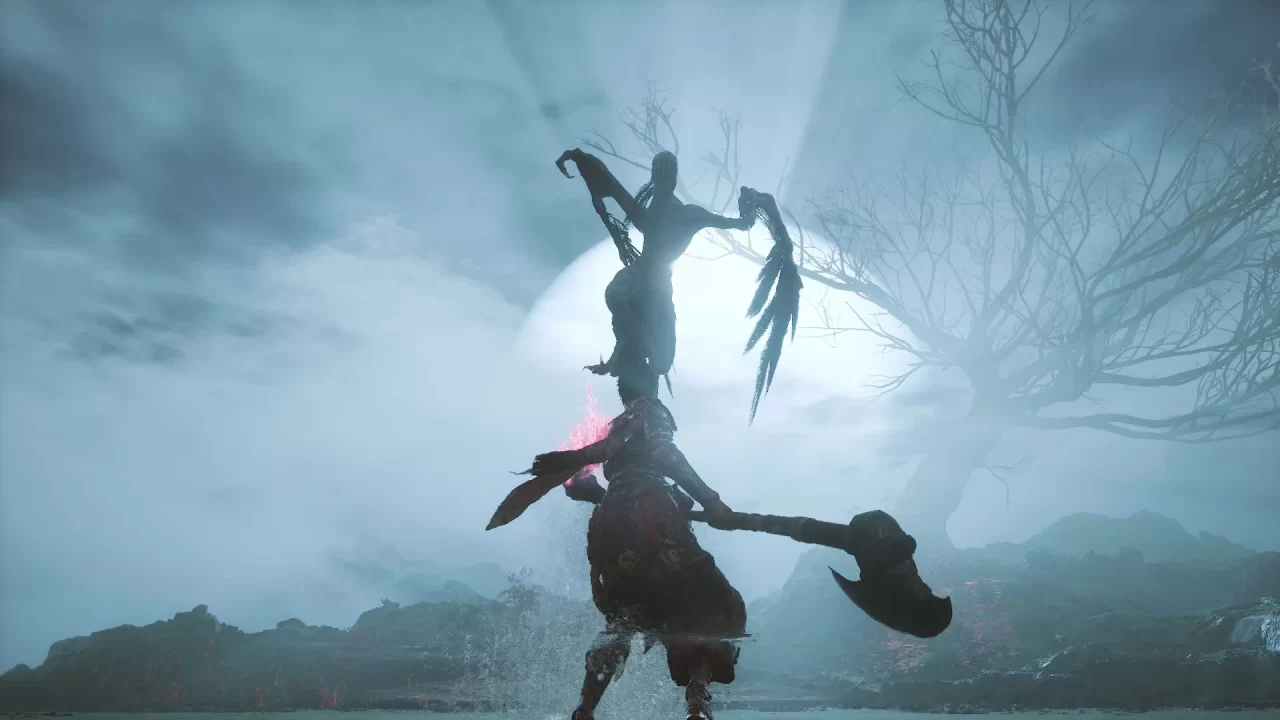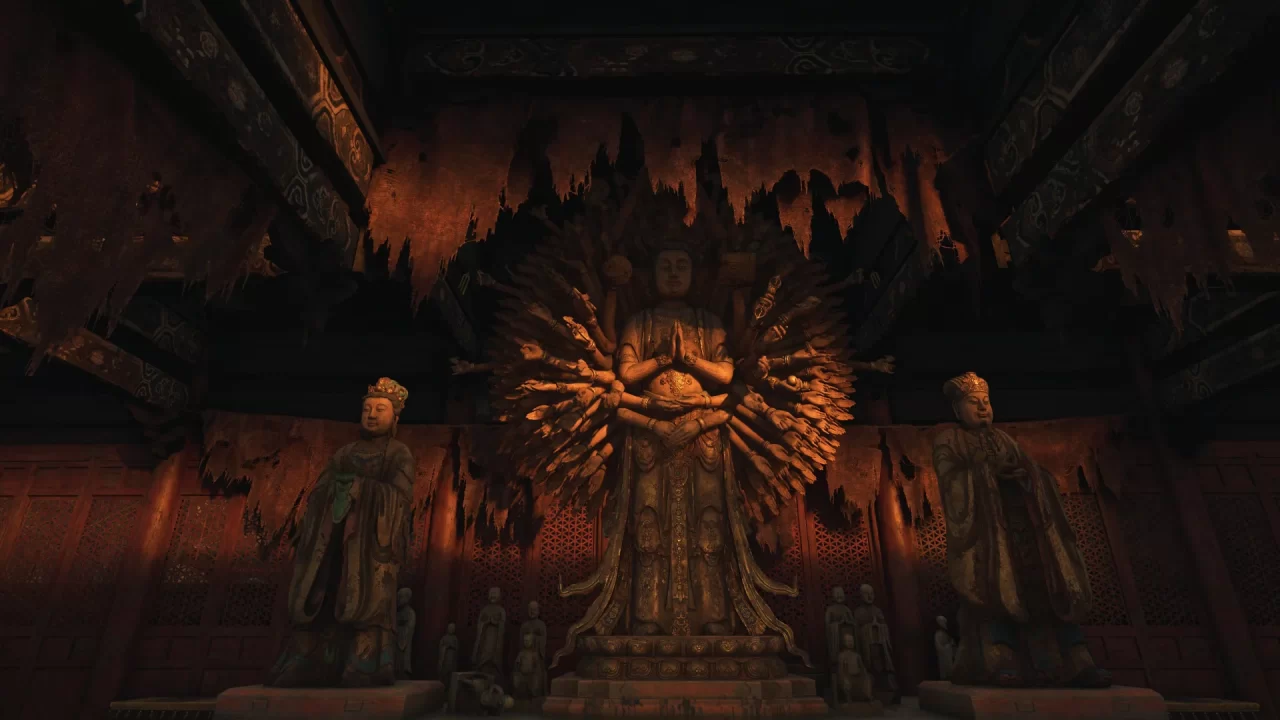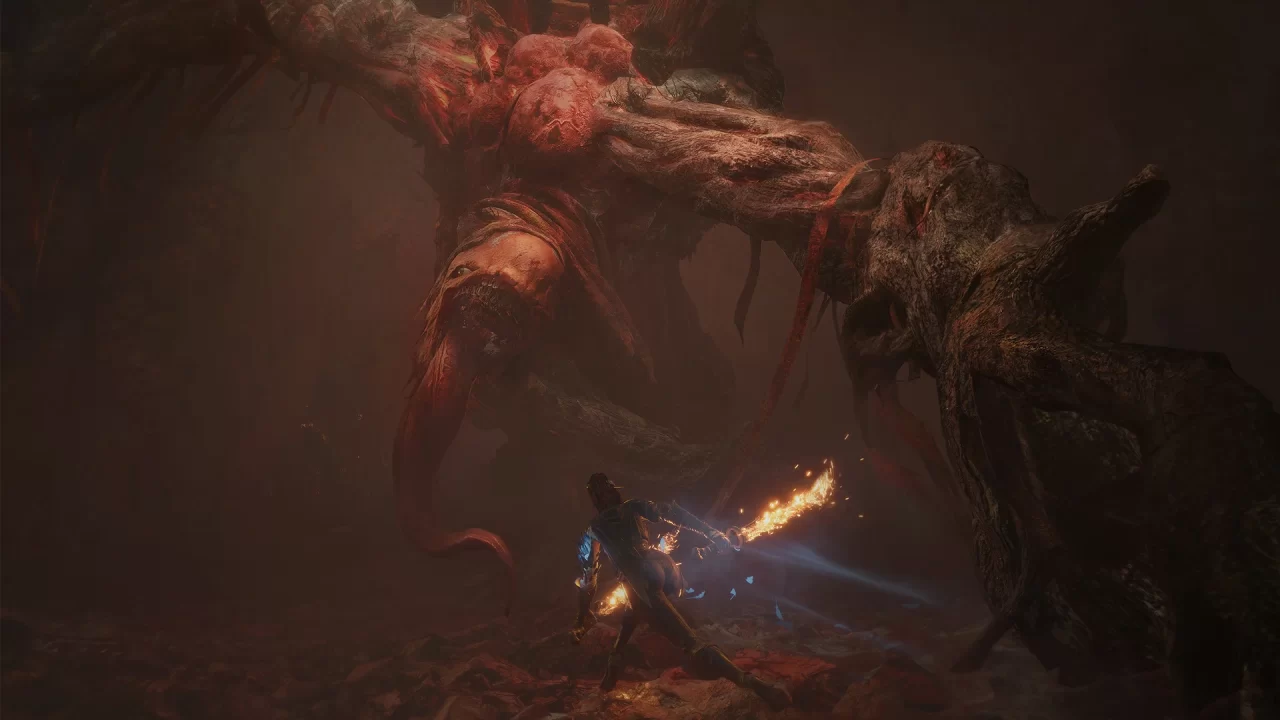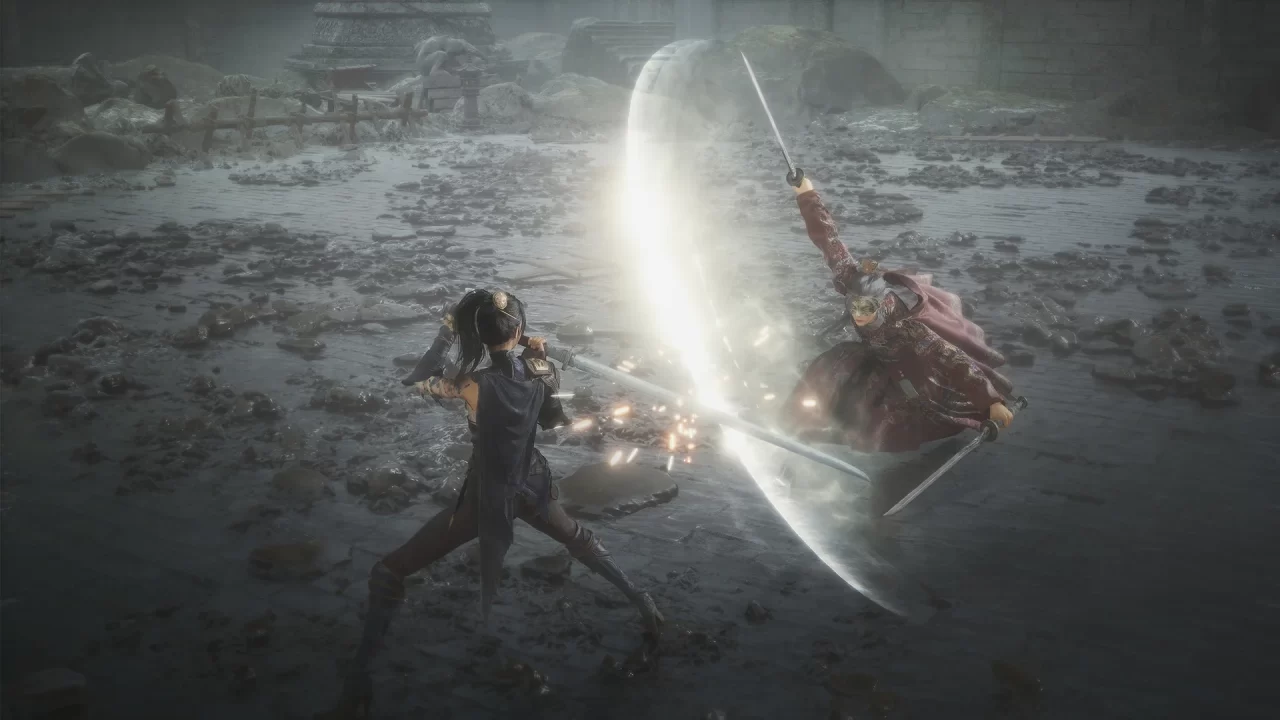Do we judge a game irrespective of its peers, or view it within the context of what games currently offer? Naturally, this is entirely up to you, though it’s a question I’ve grappled with while playing Wuchang: Fallen Feathers. A paint-by-numbers soulslike, Wuchang makes no apologies for its similarities to Nioh, Wukong, Wo Long, and, of course, Dark Souls. More copycat than maverick, Wuchang succeeds in one important aspect: fun.
Wuchang: Fallen Feathers is a historical fiction in which China’s Ming Dynasty has reached the end of its prosperous lifespan, in part because of a feathery curse plaguing the people—or as a reaction to it. You, Wuchang, wake up with this devastating illness, though, curiously, you have not succumbed to madness; on the contrary, you seem more powerful than ever. Struck with amnesia, Wuchang ventures to find answers.
Story is a challenge with soulslikes, because Dark Souls cemented the contrast between mysterious and macabre atmosphere in which players are never truly sure what is going on, and the sense that the unknowable lore runs deep. Wuchang‘s similar attempt to play coy with lack of clarity is worsened by large swaths of gameplay between brief dialogue exchanges. Of course, if you can find the patience to stop hacking and slashing as you pick up several different items, the inventory offers some (and I do mean some) insights and flavor into what the hell’s going on.
Okay, so, the story’s serviceable—I guess—but what was that I said about fun earlier? Right, so, expect no surprises here in terms of gameplay. Have you played a Souls game before? If so, skip this paragraph. For the uninitiated, this is an action RPG that plays over-the-shoulder in third-person. Equip a one-handed sword, longsword, dual blades, spear, or axe, and mete out justice on Wuchang’s foes while maintaining a depleting-and-replenishing stamina gauge. Light or heavy attack with a couple special abilities per weapon, and you have your combat. Should you dodge, block, or parry incorrectly, a jug of juice allows healing in between shrines, where you refill Wuchang’s jug, level up with red mercury (dropped from enemies), customize gear, and teleport to other shrines (fast travel). Shrines are almost always tastefully placed apart from one another so as not to frustrate players, though far enough to foster a sense of urgency. Expect to find shortcuts to an old shrine in lieu of a new shrine.
Wuchang‘s gameplay boasts novel elements, though nothing that’s going to wow anyone. Still, I enjoyed these asides. For instance, each weapon type has its own skill tree that offers stats relevant to that weapon type (i.e., strength versus agility), as well as unique skills that can modify the two special abilities of the current weapon. Apart from active abilities, most of the tree’s ability nodes passively affect abilities or create benefits should Wuchang’s madness reach a certain percentage of the maximum allowance.
Madness accumulates as Wuchang kills humans or dies in combat. Players drop a percentage of their red mercury on death, depending on how mad Wuchang has become. Madness also impacts damage dealt and received, with higher madness generating greater risk/reward. Should Wuchang die with full madness, she may spawn an Inner Demon that she must defeat before earning her red mercury back, which can have its own benefits to earn in the form of tempering needles.
Tempering allows Wuchang to imbue her weapon with an element temporarily, which is critical in toppling mighty foes and bosses. Other needles provide passive benefits, such as improving the stat bonus on a weapon for greater damage or enhancing tempering more directly. Accessories allow players to further customize Wuchang to fit a playstyle. Most trinkets don’t offer much in the way of creativity, typically bolstering an element type, mitigating damage under certain conditions, and so on.
Enemies are the standard fare here: humans and monsters hide behind walls waiting to ambush our heroine, provide different movesets that we have to puzzle out so we can mindlessly thwart them the next hundred times we see them, and drop an excess of near-useless items. Bosses tend to be sword-wielding humans, so expect to memorize six or so attack patterns with a variety of pauses in between slashes so that you can figure out when it’s safe to take a swig or cast a spell.
Spells, on the other hand, make Wuchang feel like a more unique experience. With a well-timed dodge or some other means, players earn fleeting points of skyborn might, used to enhance physical abilities or cast a variety of spells. Initially, Wuchang can’t earn much skyborn might, and perfect timing on dodges can feel like a poor man’s parrying without the benefit of stunning the enemy, but after speccing out Wuchang on the skill tree, spells and unique abilities offer an exciting means of addressing each threat.
As I write this, I can’t help but notice how flippant I feel about the design on paper. Nothing here wows, and, honestly, I wish the developers didn’t try to piggyback the success of other franchises so much. That being said, Wuchang is thrilling to play, and after doing a pretty thorough run and finishing at about 48 hours, I can say with certainty that Wuchang held my attention from start to finish. One of the greatest accolades I offer any game is that when I wasn’t playing it, I was thinking about playing it; this is true for Wuchang.
I played on PS5 and ran into some stuttering, though it rarely impacted my success in combat. The seamless controls, with shortcuts that intuitively make sense, and natural flow of combat ensure no hurdles get between you and the thrill of battle. On occasion, I found unusual difficulty spikes from bosses, though this typically occurs at the end of “chapters” set in starkly different locations. Naturally, bosses increase in difficulty as the game continues, but remember that beating your head against a wall’s not going to do you any favors. Take a breath, step away, and come back with a new gameplan; review your armor, try different abilities, and maybe even freely respec the skill tree and try a new weapon.
I quibble with the unusual reliance on sworded human bosses which crafts a bland sensation in a game about monsters and corruption, but the colors, flashes, and art in general instill life beyond this lost opportunity. Wuchang’s dazzling environments, attention to detail in the most innocuous walls, and flashy abilities allure the eyes and keep the otherwise repetitive experience fresh. Similarly, the music, with its heavy reliance on befitting Chinese instrumentation complements the cinematic experience nicely. The English voice acting could use some work, with some characters unable to agree on the pronunciation of “Wuchang,” just as an example; the actual delivery of lines is competent, though.
Fans of soulslikes, you may be experiencing the fatigue I hit with metroidvanias. Unless a title really turns the sub-genre on its head, I’m not going near it. I get it. If you’re tired of copycats, maybe this one isn’t for you, because it’s really not doing anything you haven’t played before. On the other hand, if you love this genre and can’t wait for another high-budget adventure, Wuchang will scratch that itch nicely. Newbies to soulslikes may want to look elsewhere, as boss fights can feel extremely punishing, and even with all of the experience I have with these games, I found a few bosses absolutely brutal and ridiculous in their attack patterns. Another way of looking at Wuchang: Fallen Feathers is this: if a Souls game never existed and this hit store shelves, we’d all be clamoring about what a marvel and game-changer this is. Although extremely paint-by-numbers, fun is fun.






